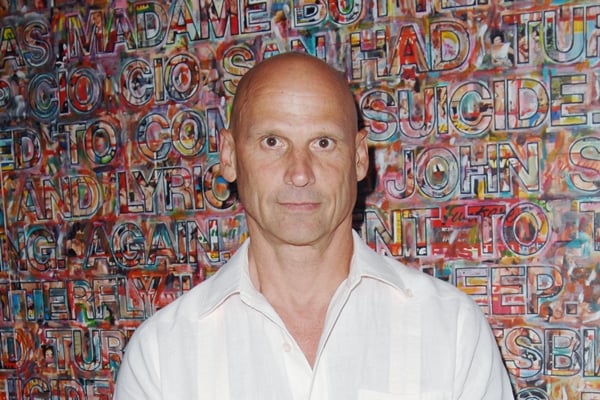
Earlier this month, artnet News reported the list of creditors in the Perry Rubenstein bankruptcy case. The gallery opened in New York in 2004, and when the business relocated to Los Angeles in June 2012, Rubenstein and his family moved as well. Among those to whom Rubenstein owes money are street artist Shepard Fairey, actor Simon Baker, and Michael Ovitz, former Walt Disney Co. president and founder of Creative Artists Agency.
In anticipation of the hearing, which begins in Los Angeles Bankruptcy Court tomorrow, artnet News spoke with Rubenstein about the factors that contributed to his current financial woes and about his plans to move forward.
When asked if the gallery’s financial difficulties predated its move west, Rubenstein insists that is not the case, and that “the problems that have manifested themselves are a direct function of issues and matters that developed here in Los Angeles.”
In general, Rubenstein is not able to comment on the individual creditors listed in his case. As for Fairey, who Rubenstein refers to as “a Los Angeles institution,” the street artist was one of the very first LA artists the gallery approached. Although the dealer remains extremely proud of the artist’s exhibition at the gallery, which involved a performance with Neil Young, Rubenstein is matter-of-fact when asked about the current state of that relationship: “unfortunately Shepard is listed as one of the creditors so I think that speaks for itself.”
Understandably, Rubenstein is disappointed in how the gallery’s big move has turned out. “We arrived here with not just the best of intentions but the greatest ambitions,” he says. “We explored every viable alternative to sustain the gallery as it was intended—every option from refinancing and restructuring and ultimately concluded in these past two months that insolvency was the only viable path.”
When asked if there was a straw that broke the camel’s back, so to speak, Rubenstein demurs, saying “there is no single factor that contributed to the decision to close the gallery so precipitously, nor do I regret for a minute my decision to come to Los Angeles to build it.”
His passion for LA is clear and unwavering. “I still believe in the city to be the center of artistic production, and it is my hope that in another iteration I may find a way to contribute to its growth,” Rubenstein avers. “That said, among my deepest regrets is that in failing to sustain our goals, ambitious as they were, our closing has impacted many of the same artistic practices that we had hoped to enrich.”
“Needless to say the circumstances in which I find myself differ dramatically from any that I may have ever anticipated or envisioned,” Rubenstein admits. He intends “to move through these next days and months addressing and fulfilling all of my obligations, with the hope that in doing so that I can restore and repair relationships that have been built over three decades.”
While a more easily discouraged man might have returned to New York with his tail between his legs, Rubenstein is not ready to give up on the West Coast: “I came to Los Angeles because I believe in the extraordinary artistic community and its developing place within our cultural landscape.” Despite the apparent failure of his California venture, Rubenstein said his intent is still “to make every effort to continue to live and and to work here in order to ultimately achieve some of the goals that we set out to accomplish when we first migrated and moved here.”
When asked, the dealer admits that a rebirth for the shuttered gallery “is not outside of the realm of possibility.” Rubenstein cites his “ongoing relationships with a number of the artists with whom we’ve worked,” and anticipates “being able to work both through this and move forward with a number of those relationships.”
That being said, while Rubenstein says he has “been approached with multiple opportunities,” and admits that “the options that are the most attractive all revolve around remaining here in Los Angeles,” he says he is fully committed to resolving his obligations to his creditors before making any decisions about the future.